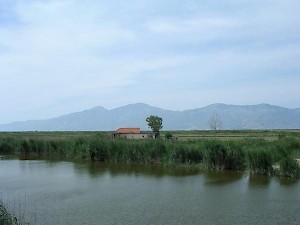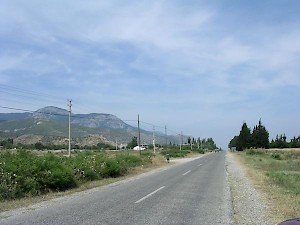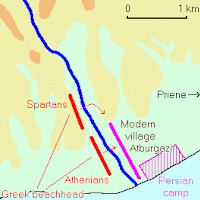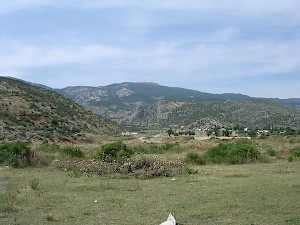Mycale (479 BCE)
Q503982Mycale: promontory in western Turkey, famous for a battle in 479 BCE in which the allied Greeks defeated the navy of the Achaemenid king Xerxes, modern Dilek Daği.

The Mycale promontory faces the Greek island of Samos. Today, it is less impressive than it used to be, because over the ages, the river Meander has deposited much mud and sand along the mountains, so that it is now for a large part connected to the Turkish mainland.
In August 479, a Greek expeditionary force, commanded by the Spartan king Leotychides, attacked a Persian army at Mycale. It was able to cross the Aegean Sea, because the Greeks had already defeated the Persian navy at Salamis, in September 480, and the Persian ships at Mycale had already been forced to take up defensive positions.

For unknown reasons, Xerxes had not reinforced them, and had allowed a part of his fleet - the ships from Phoenicia - to return to their home towns. The Persian navy at Mycale must have been demoralized, and may have been outnumbered by the Greeks.
The site of the battle has been identified to the southwest of the modern town Atburgazi, which is not far from the more famous ruins of ancient Priene. According to Herodotus of Halicarnassus, our main source, the Greeks landed a bit more to the west.

The right wing of the Greek army, which consisted of the hoplites from Athens, proceeded along the coastline - the modern road - and reached the Persians first.
The left wing of the Greek army, the Spartans, attacked the Persians after a detour through the hills on the promontory, and surprised their enemies when they arrived from the interior - where the Persians believed they would be safe. The Spartans arrived later than the Athenians, but in time to cut off the line of retreat of the Persians. Still, many of them were able to make their escape across the mountains.

It was the first Greek victory in Asia, and although the Athenians and Spartans overcame a demoralized opponent, it was an important event. From now on, the Greeks were taking the offensive. According to legend, the battle was fought on the same day as that other important victory, at Plataea.